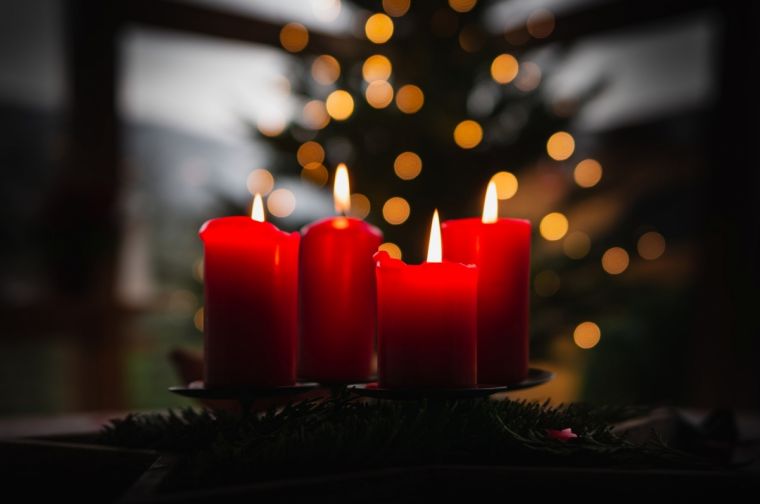What Christmas means to me

Growing up in a Greek-Cypriot family in London, my experience of Christmas was extended, complicated and exciting. There was the 'British' Christmas on 25th December, our own Greek Orthodox Christmas on 7th January and, in between, came various other celebrations including, of course, the New Year. By the way, our Greek Father Christmas (Ayios Vasilis) came in the small hours of New Year's Day, so no presents for us at Christmas!
Looking back – and Christmas is a time for reflecting – it was not a season of rest but of constant activity as my parents' restaurant made enormous demands on them and my brother Panos and me. Like all immigrant communities, we found family, however extended, important: islands of reassuring familiarity in the unnerving sea of a new culture. Amid the family and food (and there was plenty of it) was a nostalgia, heightened by the darkness of midwinter, for a sun-soaked Cyprus.
There were many different aspects to Christmas. It was a kaleidoscope of celebrations and cooking: the aroma of freshly baked pastries; meals that went on and on, consisting of succulent roasts, lemon potatoes and sweet treats draped in delicious Greek honey; loud family chatter in Greek too fast to follow; hugs and kisses from mysterious relatives.
And, of course, we went to church. How could we not? As Greek-Cypriots, church attendance was held dear. Instead of carols we heard Kalanda sung. Indeed, not to have attended church would have been to betray all that we were. However, for all their vivid and forever intimidating pomp, robed ceremony and choking incense, I found the services incomprehensible and uninvolving; a bizarre ritual to be endured.
I believe that, even as a child enjoying all the various excitements Christmas brought, I was vaguely aware of a central emptiness. What exactly was the point of the season? We seemed to be celebrating Christmas because that was simply what you did. Christmas was like an impressive book that, when opened, contained only empty pages; a gorgeous package that, when unwrapped, contained just an empty box. Christmas – and even its religious ceremonies – made no difference to our existence, offered no challenge and changed no lives. For all the festivities, experiences and rituals, the season had a resounding hollowness.
Everything changed for me when a college friend came to believe in Jesus and introduced me to the possibility that I, too, could have a real relationship with him. I accepted the challenge and soon saw dramatic and disconcerting changes in many areas of my life, both in my attitudes and actions. Indeed, within months people were talking in a rather alarming way about me having 'a gift for sharing Jesus'. Soon I was heading towards theological college and into the role I have had for forty-five years as a Christian communicator.
Amongst the things that changed was my view of Christmas. In a famous phrase in John's gospel (chapter 10, verse 10) Jesus promises that he has come in order that people 'may have life, and have it to the full'. That 'to the full' bit sums up how my view of Christmas changed. There was much of value in the Christmas of my youth, and I like to think I have thrown away nothing that was sacred.
Instead, my new faith filled the void I had sensed and allowed me to find the faith from which, over centuries, the social whirl of Christmas has sprung. What had been utterly peripheral in the season became central. After all, if the baby in Bethlehem was God, personally and incomprehensibly becoming part of the human race to save us, then everything else must be of minor significance.
Curiously, that refocusing of my views did not devalue my experience of Christmas but, instead, enhanced it. With the birth of Jesus – and with it the long road to the cross and the resurrection – put down as a firm cornerstone, everything else finds its proper place.
And today? Today, Christmas plays such a major role in my existence that I feel a bond with St Nicholas! Most years I speak at twelve carol services, which I love. When I sit in an armchair on Christmas Eve and spend time with family and friends, I am aware that having found the meaning of Christmas, I need to guard it. Like ivy over a building or cobwebs over furniture, the clamour and clutter of the season can easily obscure sight of the baby in the manger.
Here, as in so much else, I realise I need to keep the main thing the main thing. I find myself defending, as the centre of Christmas, the still, quiet focal point around which everything else orbits: the idea – to me the truth – that in this infant, God was with us. In that sense, Christmas means everything to me.
Canon J.John is the Director of Philo Trust. Visit his website at www.canonjjohn.com or follow him on Facebook, Instagram or Twitter.











